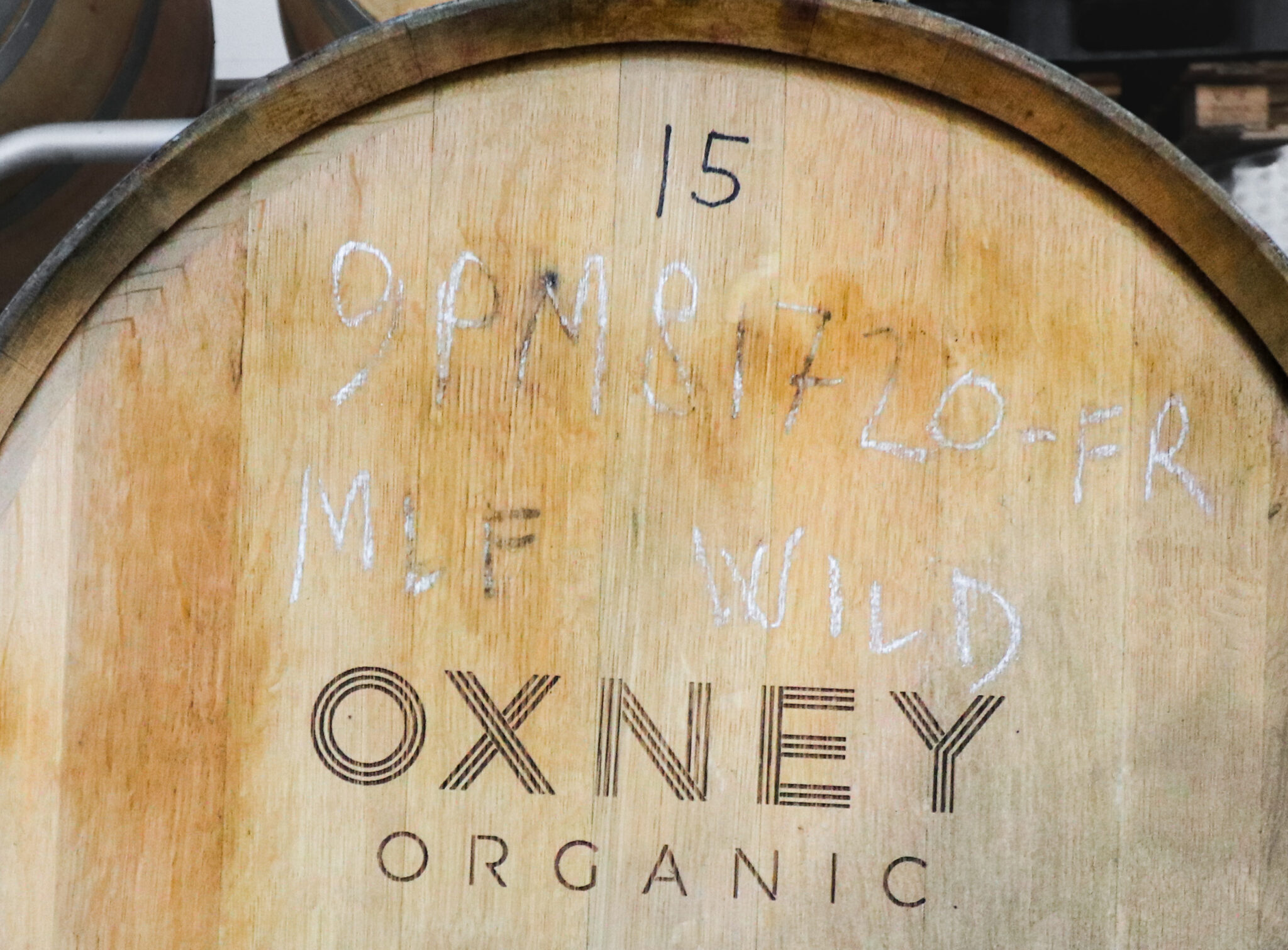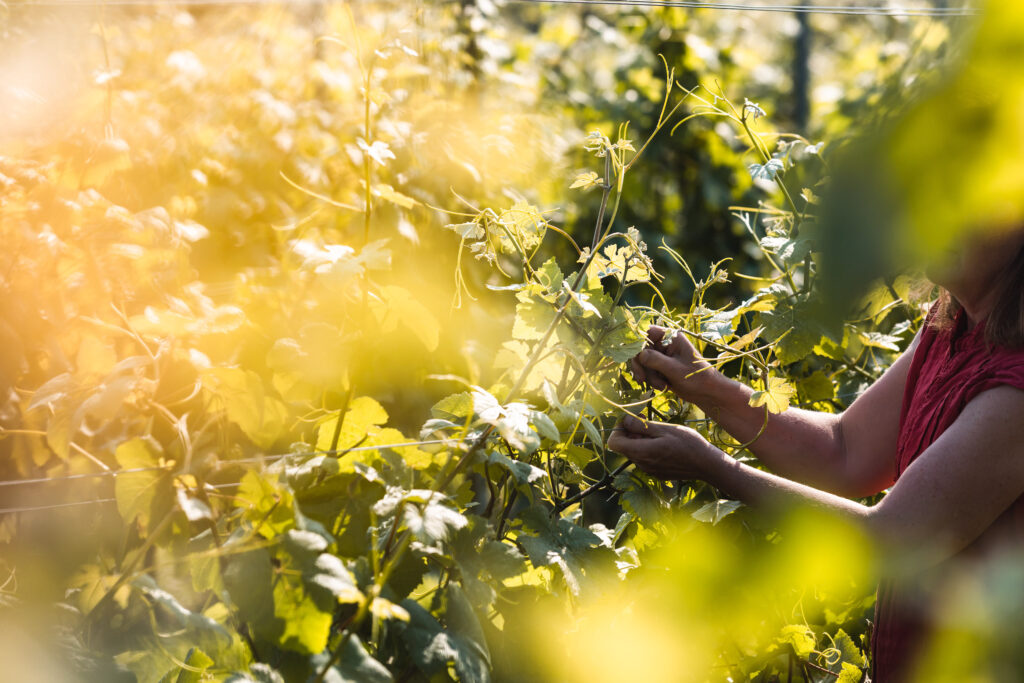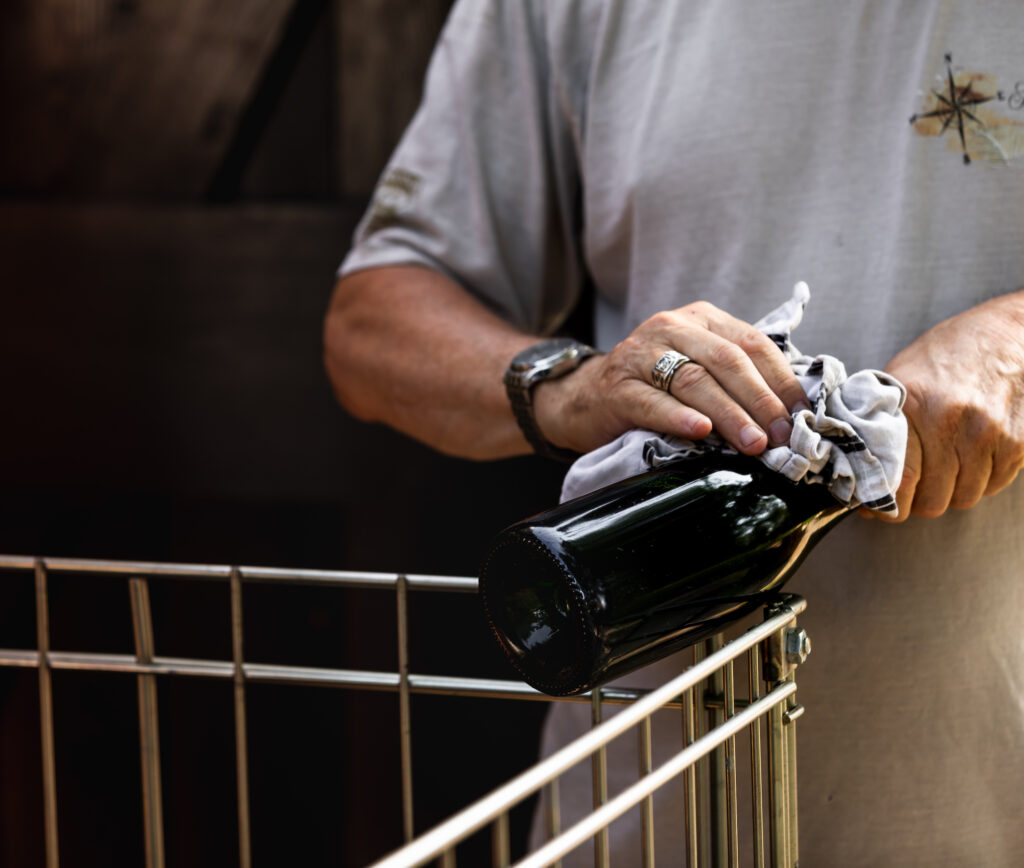What low intervention winemaking means to us

With more and more producers claiming to make low intervention wines, what should you make of the term?
We’ll kick off with a question. What do you call a winemaker who doesn’t put unnecessary gubbins in their wines? This is a genuine query rather than the set-up to a bad oenologist joke.
We pose the question because the answer is slightly unclear (no pun intended). There are a couple of terms now bandied around for winemakers who eschew extraneous additives on the journey from grape to wine. ‘Natural’ is the most common, but ‘low intervention’ or ‘minimal intervention’ are also frequently used.
Are these terms interchangeable? Do they even describe the same philosophy? We’re going to use this post to delve into these matters and look for some clarity (without recourse to fining or filtering, naturally).
What is natural wine?
In its purest form, natural wine is wine made from grapes and nothing else. It’s hard to provide a more stringent definition. Unlike The Soil Association for organic wines or Demeter for biodynamics, there is no certifying body or agreed set of rules for natural winemaking. But the principles of natural winemaking typically include:
Uncontaminated grapes – Organic as a bare minimum; often biodynamic.
Wild fermentations – Grape juice converted into wine entirely by the action of yeasts already present on the grapes/in the winery. No cultured yeasts allowed.
Pre-industrial winemaking – Fermentation typically takes place untouched by modern winery technology like pneumatic presses or temperature-controlled stainless steel vessels.
Nothing added, nothing stripped out – Must adjustments, fining, filtration and SO2 eschewed.
As a result of these choices, natural wines very often tread a fine line between character and consistency. The best examples can be uniquely memorable expressions of the land and the year they came from, and unlike any other wines you’ve ever tasted.
The downside is that this isn’t always meant as a compliment. Rejecting unnecessary interventions in the vineyard and winery is a noble aim: one to which we at Oxney Organic subscribe. However, the risk of natural winemaking is that it can lead to avoidable faults from one bottle to the next – off-flavours, tangy cider notes, oxidisation, unwanted bubbles and the like.
For us, sacrificing quality and consistency in service of ideological purity is a compromise we’re unwilling to make. That’s why we believe it’s important to make the distinction between natural and low intervention winemaking.
What is low intervention winemaking?
At Oxney, we would define ourselves as low interventionists. Arguably, where we differ from the natural wine movement is by acknowledging that wine is necessarily a product of human intervention. It cannot be made without someone to train grapevines to produce wine-quality fruit; someone to process and contain that fruit for fermentation; someone to bottle the resulting wine at just the right time; and so on.
In simplest terms, wine is the sweet spot between grapes and vinegar. Our job as producers is to nudge the process on to this sweet spot, then stop it the moment it gets there.
It doesn’t take an entire chemistry lab of interventions to reach that critical moment, but it does require judicious decision-making. Our belief, to paraphrase Caroline Gilby MW, is to use the minimum interference we need, not plump for the maximum just in case. That, in a nutshell, is what low intervention wine means to us.
What makes Oxney Organic a low intervention winemaker?
As we’ve said previously, it would be odd for us to spend so much time and effort nurturing our organic grapes to their apex of quality and ripeness, only to tinker around with their character in the winery. This is our maxim of low intervention winemaking.
Wild fermentations
We are firmly with our natural wine colleagues on native yeasts. They just make things more interesting. Lab-grown cultured yeasts are chosen for the convenience of making winemaking a predictable science, especially in terms of how long a fermentation will last. But anyone can buy the same cultured yeasts, which means they lower the sense of terroir in the wines. Wild ferments, on the other hand, are a one-off celebration of their terroir, loaded with their own unique character and personality. That’s why we practise wild fermentation wherever possible, and continue to experiment with the possibilities and permutations.
Managed fermentations
Certainly for white wines, rosé and sparkling wines, we believe that some control is vital to maximise quality without compromising character. This is why we use modern presses and stainless-steel vessels in much of our winemaking. If you want to minimise or eliminate the use of SO2, there are other measures that can be taken to avoid the threat of oxidation and microbial spoilage. Hence temperature control, use of tannins, oak, lees contact and gas blanketing are modern winemaking techniques we have no hesitation in embracing.
Minimal SO2
We have a lot to say about SO2. So much, in fact, that we’ve dedicated an entire blog post to the topic. Suffice to say, this is one of our tread-lightly choices. It’s a matter of dedication as much as a matter of principle. SO2 becomes more necessary the less care you take in your winery. Like any attentive winemaker, hygiene and rigour are high on our priority list – which is why we’ve been able to experiment with zero SO2 additions in some of our recent winemaking.
Practically no fining or filtering
To our mind, there is no doubt that you cannot remove things you don’t want in a wine without removing some that you do want in there. So we don’t fine or filter lightly (which is to say we don’t fine or filter heavily). ‘Sterile’ filtration is absolutely out of the question. Passing a young wine through a filtration membrane with holes less than 0.00045mm across is a recipe for… well, any old wine. So much of what makes it uniquely ours would left in the filter, there would be little point in putting our label on the bottle.
How about ‘honest wine’?
Ultimately, low intervention winemaking, like natural winemaking, is an attempt to produce authentic wines that make an honest statement about the health of the vineyard they originate in. These wines are an expression of the land, climate and year the grapes were grown in, and the gentle care taken by human hands to ripen them.
Yes, they come with variations, but we see that as something to celebrate, not obliterate. Every vintage comes with a thrill of the unknown, because every passing year tells a new story in the Oxney vineyards.
We’ll leave the convenience producers to their reprints. We prefer to do new editions every year.

